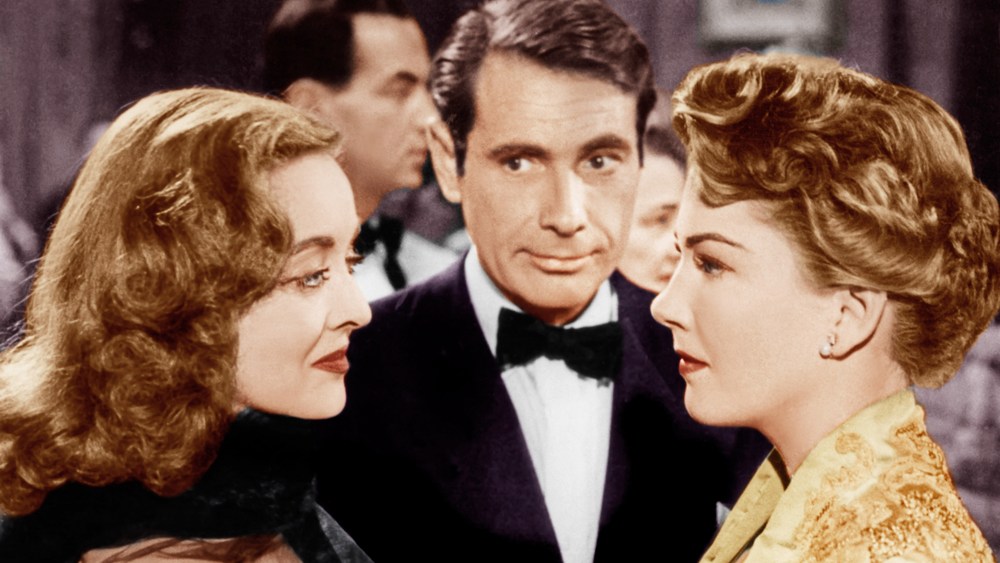When it comes to “All About Eve,” the Joseph L. Mankiewicz film starring Bette Davis and Anne Baxter, Julianne Moore can be counted as one of its devotees.
Molly Smith Metzler, the creator of Netflix’s “Sirens” starring Moore as mysterious philanthropist, called Moore a “fan” of the film. In fact, the 1950 classic bled into the making of “Sirens” as director Nicole Kassell frequently referenced the film. “I believe that she and the cast talked about it at length and watched it at length. I can’t testify to that, but I do believe that’s what happened,” Metzler said.
The creative team behind “Sirens” joined Variety for a screening of “All About Eve” to discuss the classic and its relevance to their series about three women’s evolving power dynamics.
Metzler appeared alongside writer and executive producer Colin McKenna, cinematographer Greg Middleton and editor Catherine Haight to kick off the Variety 120 Screening Series presented by Barco, a summer-long program that is hosted by Jazz Tangcay and celebrates Variety‘s 120th anniversary by showing iconic films.
“Sirens” follows Devon (Meghann Fahy), a woman from Buffalo, N.Y., who acts as the main caretaker for her father and tries to convince her sister Simone (Milly Alcock) to help her, only to find that Simone’s living large on a secretive island estate run by Moore’s character Michaela. The creatives drew comparisons between Simone and Baxter’s Eve, as well as Michaela and Davis’s Margo.
Metzler confirmed that “All About Eve” “had a subconscious influence on this creative team.” But one difference in “Sirens” is the choice not to outright villainize Simone. “I think the show sort of asked you to decide if she’s a monster or not,” Metzler said.
“[Eve is] a sort of traditional villain, and I think Simone has ingredients of that, but we try to have more fun,” she added.
There’s also an inverse in the way Simone presents herself versus Eve. “We find out that Eve has been lying about her backstory and kind of covering up a darker, sadder story. And with Simone in ‘Sirens,’ she is lying about her past, but it’s actually a really sad [story], and it’s almost kind of opposite,” McKenna said. “She’s trying to hide the darkness ’cause she doesn’t want to talk about it, while I think Eve is manipulating her background to get a foot in the door.”
Middleton said the viewing experience of “Sirens” is different from “All About Eve” because it creates more empathy for the central character. “The one big difference between this and the film tonight is that you feel something for Simone. I don’t think I feel anything for Eve. I was like, ‘Screw you, Eve.’ You know what I mean? Because Eve is diabolical, but Simone is a broken person,” he said.
The creatives were also asked about how “Sirens” possibly offers a female gaze on its trio of women, in contrast to the male gaze of “All About Eve.”
“We created this extreme close-up so that the audience feels hypnotized by Mikayla. But in the film, when we first meet Eve, she sort of seems like a robot. She seems hypnotized. So the point of view is the other way around…and we are never invested in her point of view, so we aren’t experiencing the world like she does,” Metzler said.
She also mentioned how “Sirens” plays with Greek mythology and the concept of sirens who attract men through their voice, only to kill them. “All of that’s from Homer’s point of view, or it’s the sailors’ point of view. We don’t actually know what the women are singing about or who they are,” Metzler said. “I don’t know that ‘Sirens’ the show explains that, but we sure do try to shine a light on that. Like, this mythology is wrong, we shouldn’t hear this story and assume they’re monsters.”
“Why is it so natural and easy to dump our problems and blame on the beautiful women?” Metzler added.
Haight touched on the tonal similarities between “All About Eve” and “Sirens,” which balances drama, humor and satire. “When we started to get the footage in post, to me it was very clear what the tone was, even though it was unusual and…it was very hard to think of a comp. But it’s funny because this movie sort of is,” Haight said.
Read the full article here








